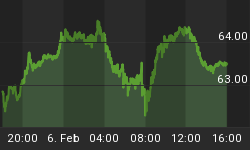For the second time in three years the case - and our mantra - has been proven that when it comes to investments, "it's not what you own, it's when you own it."
First in 2008, and now three years later the markets are once again proving that the age-old strategy of buy-and-hold simply does not add up to a recipe for success for individual investors. The question is how much money people will lose before they finally learn their lesson.
The market's most recent dip has also brought another issue to the forefront. Never before in history has it been so apparent that the quality of advice investors receive will ultimately be the determining factor in whether they are successful.
[Note: Thankfully, we were able to avoid a lot of this market volatility for TIAC clients. However, we can't provide blanket advice to readers as to how they should react to recent market action without knowledge of their specific circumstances, especially when our clients pay us for that knowledge. If readers are dissatisfied with the quality of advice they are getting, they should contact our office.]
After all, after the decline of the past several weeks, the S&P 500 now stands roughly where it did about 13 years ago (before dividends). Assuming an investor held "the market" of stocks, as measured by that index, it means that they haven't made a thin dime in over a decade - and that's BEFORE they paid any fees to their advisor, or commissions on any rebalancing transactions.
Isn't it about time investors began to move away from the antiquated thinking of diversifying across asset class, sectors, and capitalization levels? Maybe it's time to start concentrating portfolios in those areas with the best outlook, and moving away from those areas when outlook worsens.
This is also a great time to remind investors of the all-important lesson to beware of investments that "can't go down." It seems investors are always being lulled into one of these momentum trades, whether it's real estate (2007), or technology before it (2000), or now gold (2011).
In the past week we've heard arguments that the price of gold rises during times of (1) inflation, (2) deflation, and (3) re-flation. Such unabashed optimism is usually a great indication that the outlook for a given investment may not be a rosy as some might think.
Since the market started down a month ago, and particularly in the past two weeks, during which the correction has been especially harsh, we've been asked numerous times by clients, non-clients, and members of the media "where do we go from here?" There is a lot of worry that investors ought to be pulling money out of the markets and stuffing it under their mattresses, and stocking up on ammunition and canned goods, claims reminiscent of 2008.
We would like to stress the point that this is not a repeat of 2008, nor can it be considered a double dip on the back of the events in financial markets that unfolded at that time. Instead, this is an entirely new development that has occurred as the result of different factors - and will undoubtedly have different results.
The financial crisis and market crash of 2008 were the result of excess leverage that had built up in the global financial system. Years of banks lending too much money to unqualified lenders had, sadly, laid the groundwork for the perfect storm. This isn't unusual; excess almost always leads to problems, whether it's excessive eating, excessive drinking, or excessive debt financing an overbuilt housing market.
Not surprisingly, the developments we've seen this time 'round (2011), are not the result of leverage building up in the system - the aversion to lending among many banks has been well-known since the '08 crash. Instead, as we've written time and again, the problems now facing the US economy and financial markets are purely the result of poor political policy.
Unfortunately, many of the problems we are now seeing could have been easily avoided, had this country seen better leadership during its economic recovery that began in early 2009. Now it's too late, and America will likely suffer until it becomes apparent that the policies coming out of Washington will change, and investors will undoubtedly see their own portfolios fall as a result.
The circumstances we now face will surely play out differently than those of 2008, namely because they have different causes. This isn't to say that 2011 won't be a painful year in the markets, but at least the fear of a global meltdown isn't as pervasive as it was in 2008. Stocks may fall, but the sun will rise tomorrow, and investors will live to fight another day.















